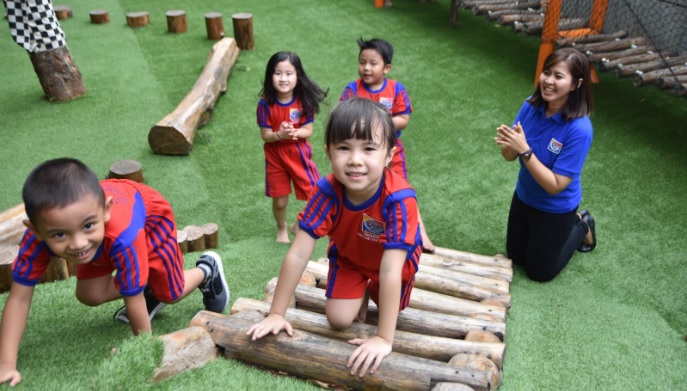
How Can Play Contribute to Your Childrens’ Development?
Play is officially recognized as every child’s right by the United Nations High Commission on Human Rights (1989). This indicates that play has an essential role in children’s lives.
This happens as it supports the cognitive, physical, social, and emotional well-being of children and youth. Psychological research has revealed that there are five fundamental types of human play, commonly referred to as physical play, play with objects, symbolic play, pretend or role play, and games with rules. Children practice and reinforce these skills in a way that can’t be achieved through worksheets or screen time.
Children enhance their creativity and other cognitive skills by playing with objects. They learn about the nature of objects, problem-solving, and foundational skills for science, technology, engineering, and mathematics (STEM). They learn sizes, heights, shapes, and even literacy.
The child’s socio-emotional development can be improved as when they play with their friends, they will learn how to interact with their playmates, how to negotiate, compromise, and understand that not everyone has the same desires and goals as them. This is where their ability of self-regulation is improved.
Other obvious benefits is that play can boost childrens’ ability to have agility, balance, strength, and they improve their fine and gross motor skills through physical activities. Despite all those benefits derived from play for children, time for free play has been markedly reduced for some children.
There are many reasons behind this matter such as limited outdoor play area, excessive screen time, rigid schedule of schoolwork, and so on. In this case, parents’ role becomes crucial in bringing back healthy play for their children.
Parents’ involvement can be in the form of facilitating and providing objects and the environment for children to play. Parents also can engage further in their children’s play by joining as playmates and asking questions that foster their critical thinking, responding to their discoveries, or encouraging them for further exploration. From the previous workshop initiated by Sekolah Victory Plus, the well-known early years expert, Anne van Dam, pointed out that as children’s playmates, we need to observe while they are playing. We need to ask ourselves what our children are figuring out. Thus, we can give meaningful feedback which stimulates their deeper thinking.
When you engage with your childrens’ play, remember that you need to avoid determining and organizing what games should be played, let your children choose and decide. It should be child-centered and it must be fun for them.
In conclusion, through playing, children will improve their creativity by involving their imagination, enhance their knowledge on literacy and numeracy by recognizing sizes and shapes, and also reinforce their social skills by cooperating with others.




